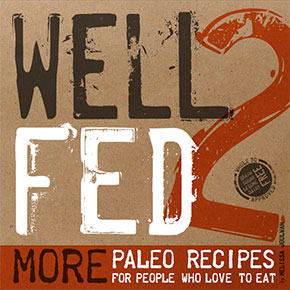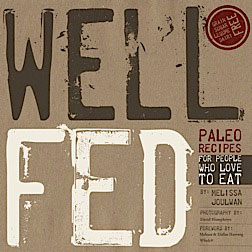We had some friends over for dinner a few nights ago, and the conversation meandered to a discussion of if, as conventional wisdom holds, "things...
Read MoreRants & Raves – 16 Feb
Silly rabbit! I forgot to post this on Friday, so enjoy it now! Happy Tuesday, I guess?
Rants & Raves is where I share links to stuff that caught my attention online during the previous week. Today’s collection is all Raves because the bad news these days is never fun-bad news, it’s only ever bad-bad news—and I’m just gonna go ahead and assume you can find terrible news yourself.
Let’s read some interesting stuff!
Dave and I have been practicing Czech by playing with Story Cubes. Do you know these? They’re dice with pictograms on the sides instead of pips. To play, you toss the dice and make up a story about the pictures, and we’ve been doing it in Czech. Our stories tend to be about trolls, dragons, and magic because it’s more fun than talking about how to buy train tickets. All of which is a long way to say that I’m madly in love with these fantastical photos—by Russian photographer Olga Barantseva—of pretty ladies and adorable children with forest animals.
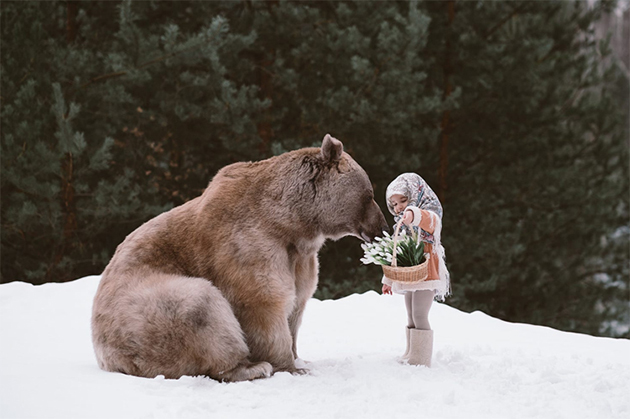
While you’re thinking about the countryside and potentially magical beings, I encourage you to read this essay from British writer Tom Cox. It’s got ghost stories, snow storms, spooky cats, dad jokes, haunting geography, and more: “I made a decision, in my sleep-deprived state: I decided that all the historical sorrow of this area, all its terrible suffering, had coalesced and settled within the walls of my house.”
This week in my Literature of the English Country House class, we dug into Act II, Scene 2 of Hamlet; that’s the one where the traveling actors come to Elsinore and Hamlet schemes to trap his uncle my showing him a play about murder. And—even better—we had the chance to try our hand at transcribing a 17th century letter. It was written by Robert Boyle—the chemist who gave us Boyle’s Law (which explains the relationship between pressure and volume of gas)—to Samuel Hartlib, an education reformer and writer. This note is kind of hilarious because it’s not about lofty science or education—it’s about a treatment for the flu. Can you make it out? If you’re curious, scroll down to comments; I’ve put the transcription there for you. I got about 90% of it right in my classwork.
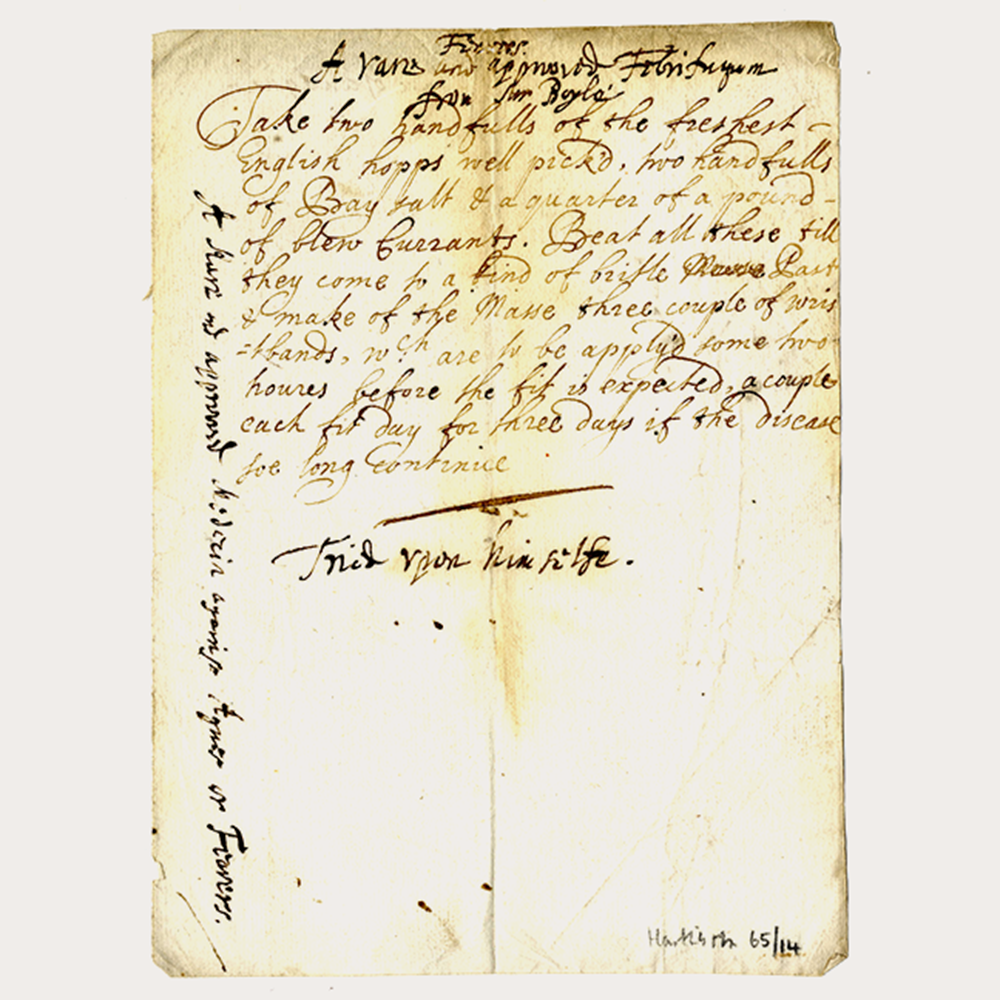
In a nerdy intersection where food and words collide, did you know that the word for recipe used to be receipt? “[T]he two words coexisted in this sense for more than a century and a half, but “recipe” became the dominant term in the early 20th century.”
Warning: This is not an easy read, but it’s an important and beautifully written one: Editing the History of the Holocaust. Written by Mark Baker, a travel journalist based here in Prague, it tackles the recent news that a new law in Poland could make it a crime to talk about its roll in the Holocaust.
To end on a light note: You need to watch this video about the Backward Index in the basement of the Merriam-Webster dictionary offices. There are more than 300,000 index cards with dictionary words typed backward; they were created from the 1930s to the 1970s. Why? Watch the video! It’s only 1:30, and it’s a delight.
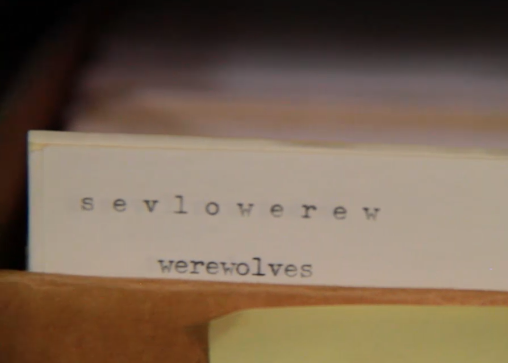
More Like This...
The woman in this video is Katie Makkai. She's a poetry slammer, and in this piece, goes to town on the word "pretty." She works...
Read More

